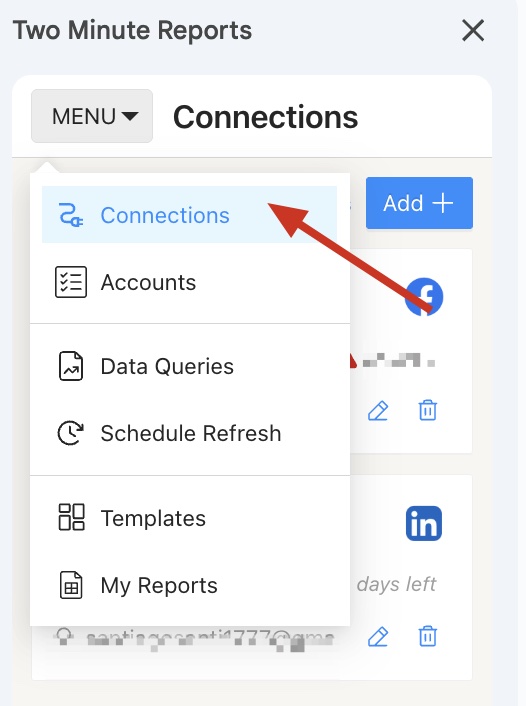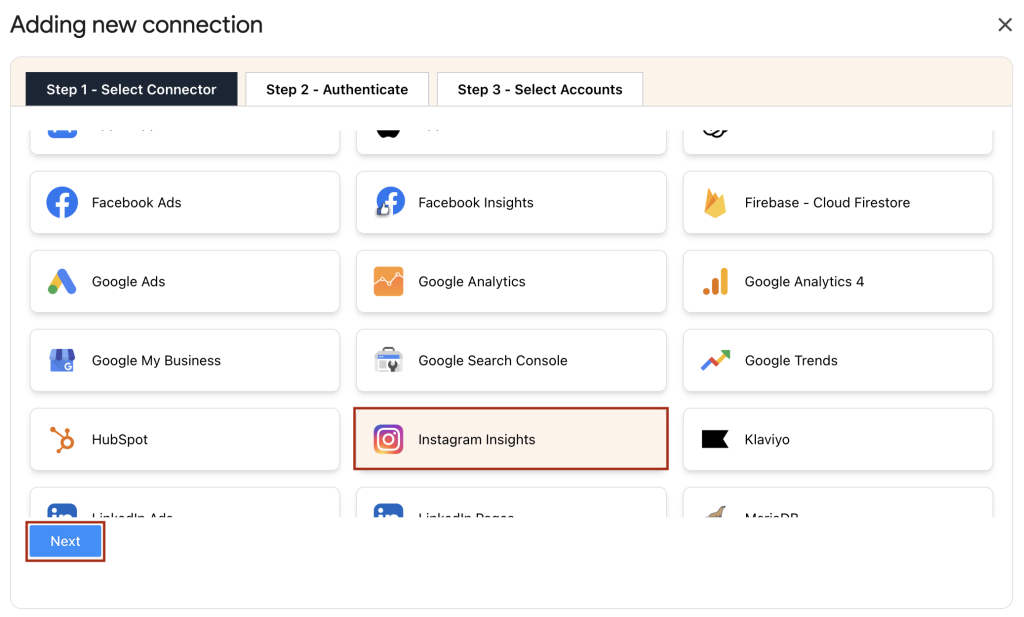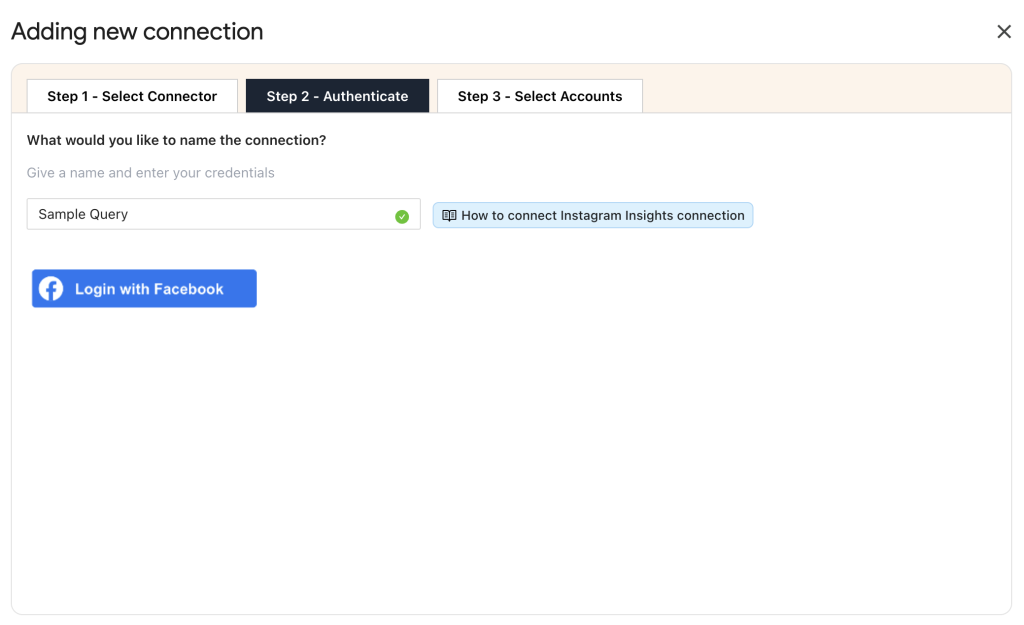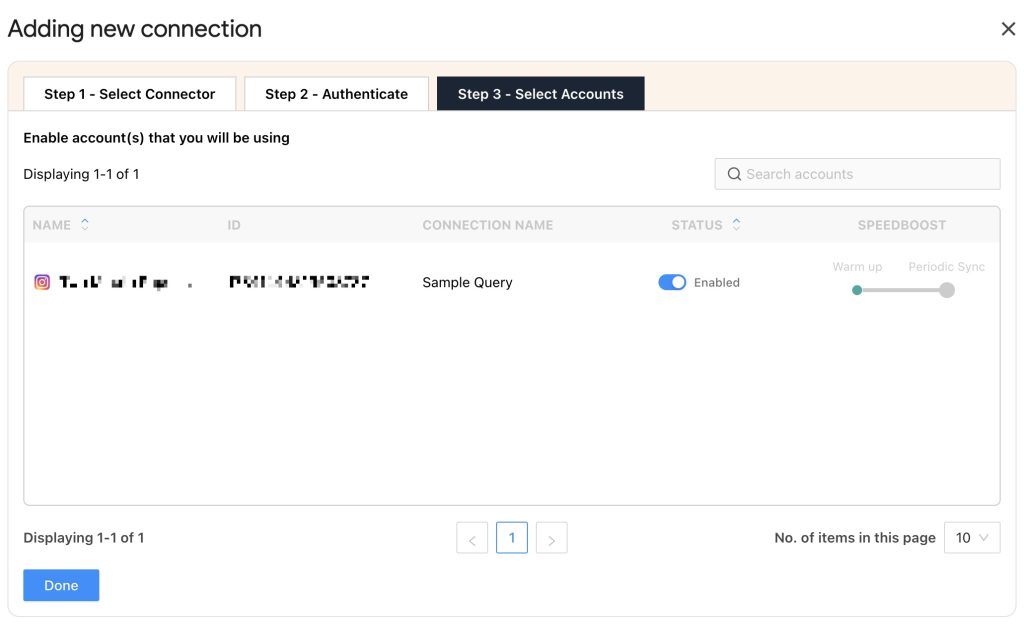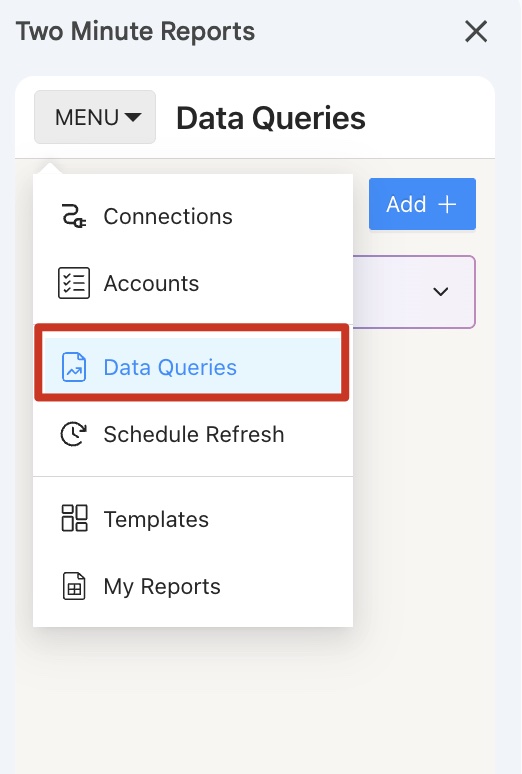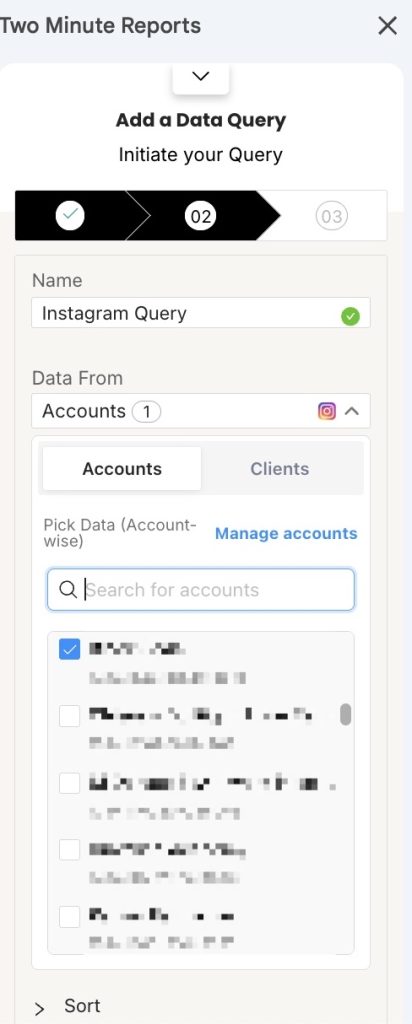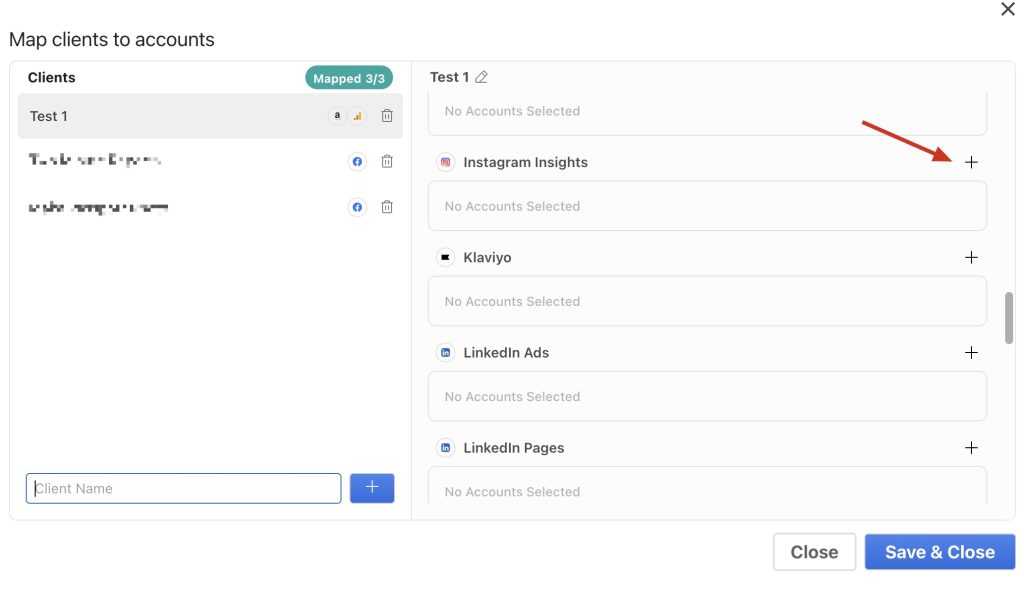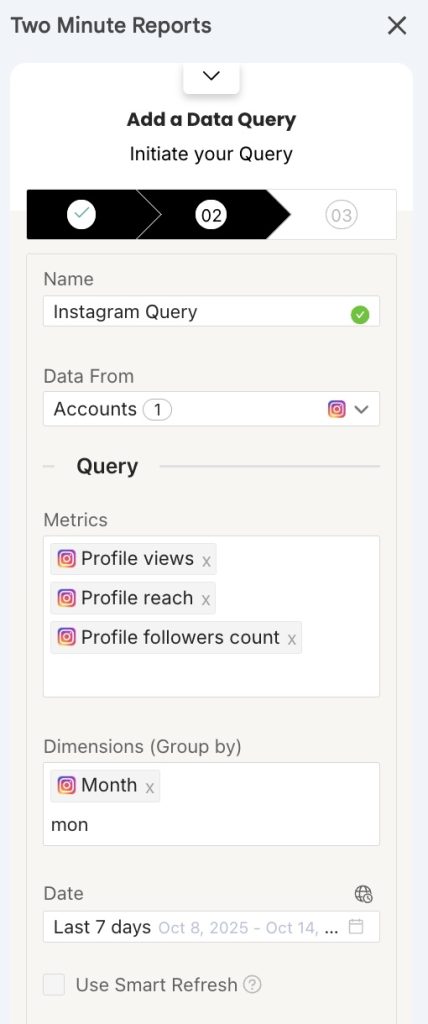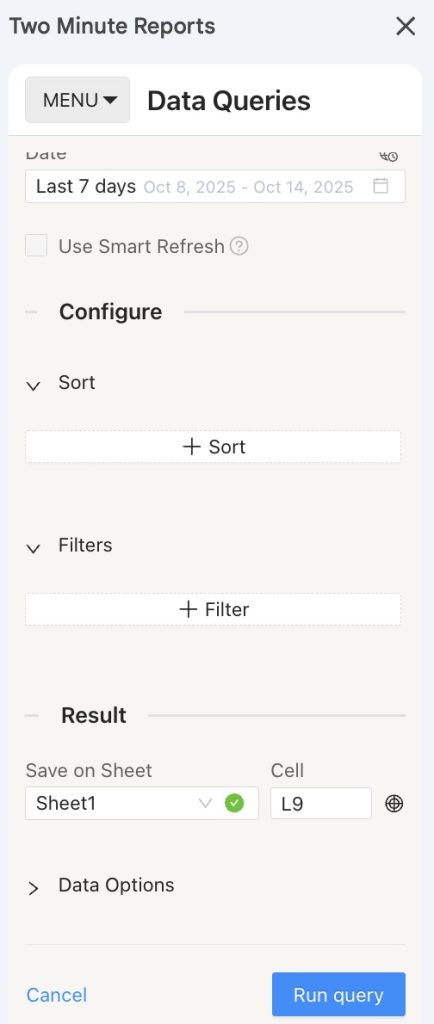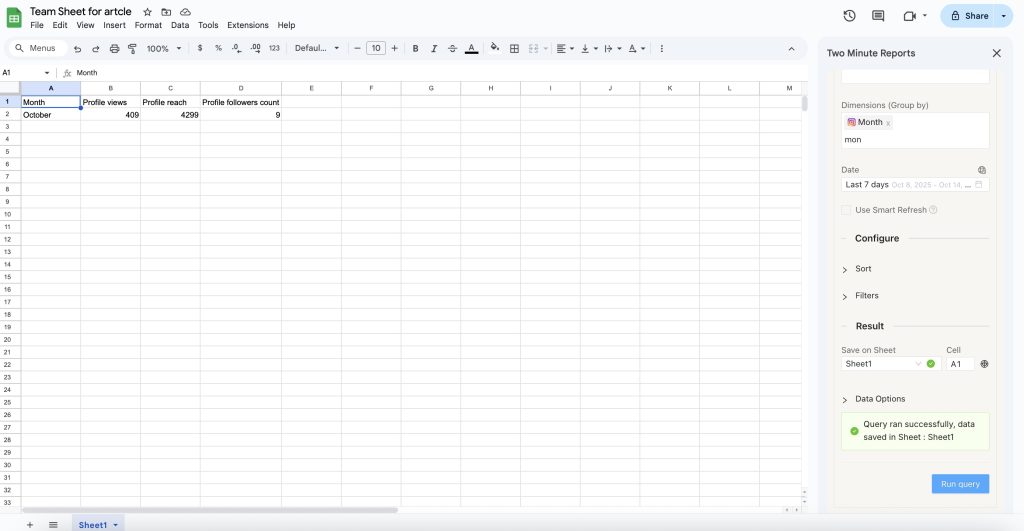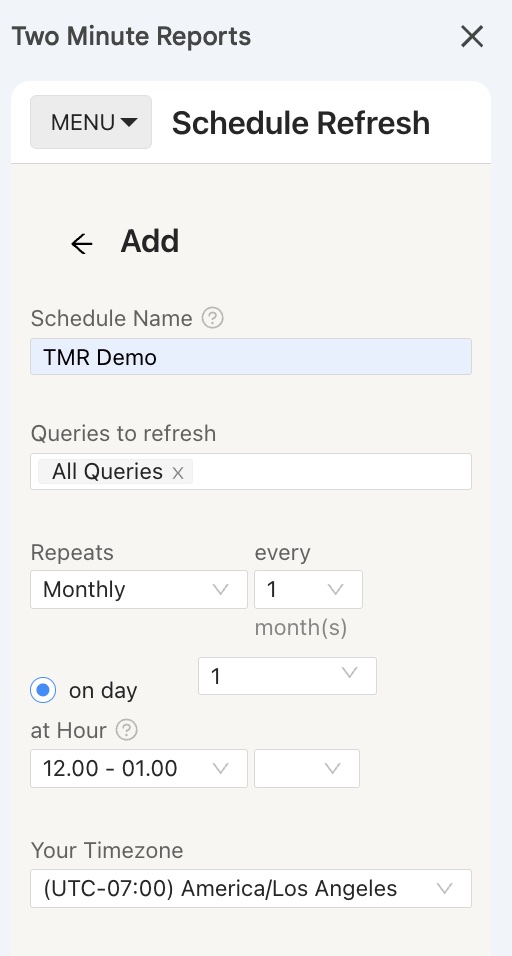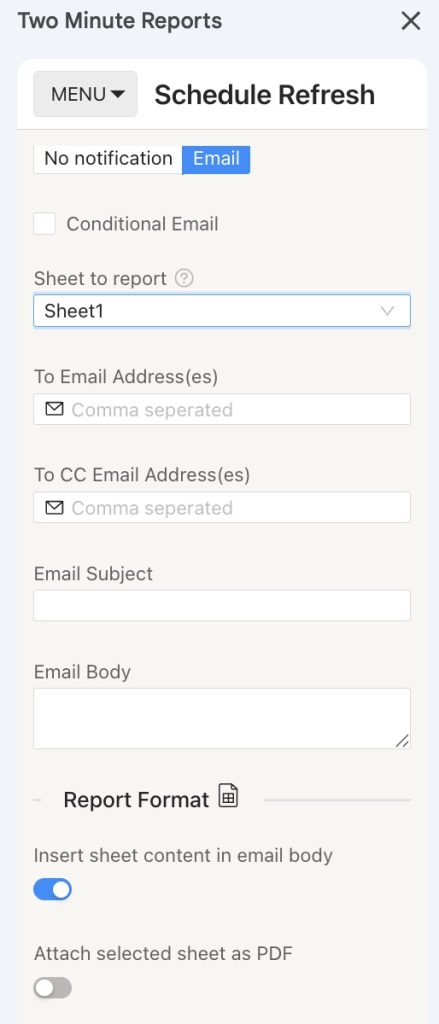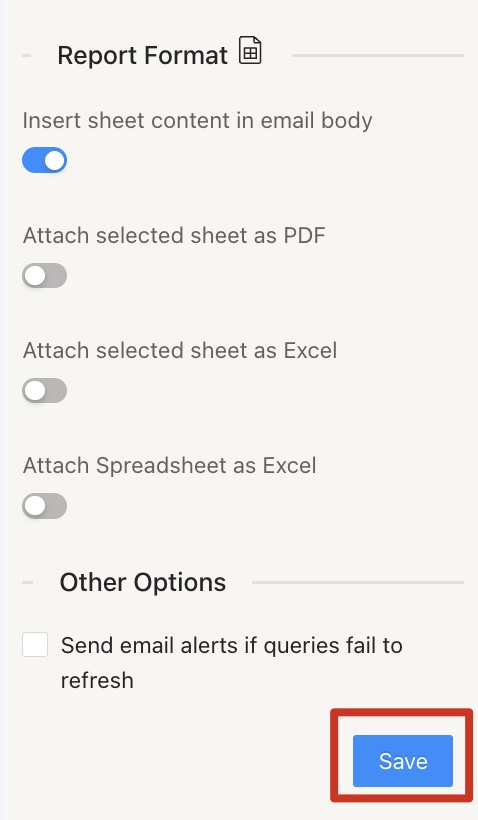With TMR’s Instagram Insights connector, you can pull real-time metrics, track and analyze page performance, and automate weekly or monthly reports directly within Google Sheets using encrypted security. Before connecting your Instagram Insights data to Google Sheets, ensure you meet the following requirements:
Required permissions
- Your Instagram account must be a “Business Account” or a “Creator account” that uses Facebook authentication and is not restricted, age-limited or private.
- The account must be linked to an active Facebook Page.
Once you confirm these prerequisites, follow the steps below to connect your Instagram Insights data to Google Sheets through TMR.
Step 1: Install and Launch Two Minute Reports
Start by installing TMR in Google Sheets using this step-by-step tutorial: How to install TMR in Google Sheets?
Once done, you can connect your Instagram Insights account to extract page performance data into Google Sheets.
Step 2: Create a new Connection to your Instagram Insights account
Click Menu at the top left of the sidebar to navigate to the Connections section. Next, click Add to create a new Connection.
When the “Adding New Connection” dialog box appears, complete the following three key steps to access your Instagram Insights accounts:
- Select the Instagram Insights Connector
- Authenticate your account
- Enable the specific accounts with the Instagram Insights Connector
Choose Instagram Insights from the list of options, and authorize your Connection by entering your login credentials.
After successful authentication, you will see a screen showing your Account name, ID, Connection name, Status, and Speedboost, as shown below:
Enable the accounts for which you want to run queries. Once enabled, Speedboost is automatically activated, allowing you to retrieve Instagram Insights data within seconds. Please note that you cannot run queries from the disabled accounts.
Once an account is enabled, Speedboost performs two functions:
- Warm-up – Prepares your account for faster data retrieval by caching your historical data.
- Periodic sync – Ensures your data stays updated automatically at regular intervals.
| To reflect the connected accounts in the TMR sidebar, click “Refresh Connections.” |
Now, you can extract Instagram Insights KPIs into Google Sheets for actionable content performance insights.
Step 3: Fetching Instagram Insights data to Google Sheets
To extract specific Instagram Insights data, you must create a new query by navigating to the Data Queries section.
- Click Add and choose the Instagram Insights accounts you want to analyze.
- You can manage multiple clients’ Instagram accounts from one interface. Simply select one or more accounts to obtain actionable content marketing insights.
- Alternatively, you can navigate to the Clients section to add your clients and map their corresponding Instagram Insights accounts.
- Click on “Manage Clients” and map the necessary account details. Then click “Save & Close” to save your client’s information for future reference.
Next, add Instagram Insights metrics and dimensions you want to analyze and select the date range to track your client(s) page performance.
- Configure your data reporting by selecting relevant fields and choosing whether to sort them in ascending or descending order. You can also apply custom filters to display only the information that matters.
Once you finish these steps, click Run Query to visualize the output.
You can then use various Google Sheets features, such as pivot tables and VLOOKUP(), to extract critical insights and build charts to visualize your Instagram Insights data.
| Pro TMR Tip: Run all your queries directly from the Extensions menu in Google Sheets. Go to Extensions > Two Minute Reports > choose your desired quick action. |
Step 4: (Optional) Get automatic data updates via Schedule Refresh
Once you create a report in Google Sheets, you can schedule automatic updates to get live data. This feature is convenient for sending emails or refreshing your spreadsheets to use them as a dashboard.
In the email section, you can enter the recipient’s email address and save the new schedule.
You can also specify the reporting format. You can opt to insert the sheet content in the email body, attach the selected sheet as a PDF or Excel file, or attach the spreadsheet as an Excel file.
Two Minute Reports’ Schedule Refresh feature has further capabilities. Continue reading about this feature: “How to Refresh Data Automatically in Google Sheets.”
We hope you found this guide helpful. If you have any questions, please contact our support team at [email protected].
